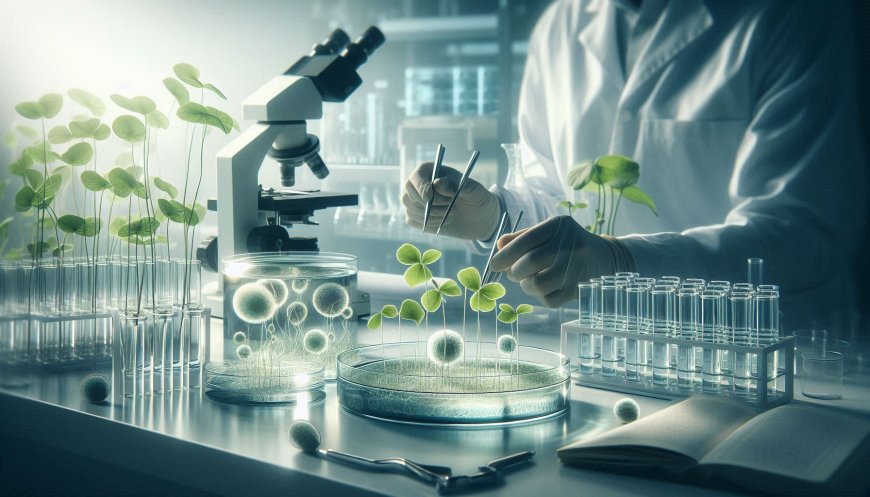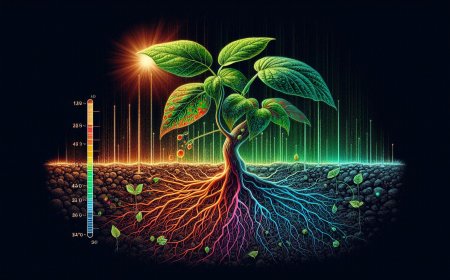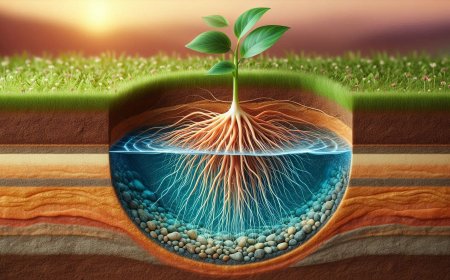Tissue Culture: Unlocking the Secrets of Plant Growth and Propagation
Tissue culture is a powerful plant propagation technique used in biology to clone plants, conserve species, and enhance crop production. Learn about its process, benefits, and applications.

In the world of biology, tissue culture has emerged as a powerful tool that enables scientists and horticulturists to clone plants, conserve endangered species, and enhance crop production. This technique, which involves the growth of plant cells in a controlled, sterile environment, is revolutionizing fields ranging from agriculture to medicine. But what exactly is tissue culture, and how does it work?
What is Tissue Culture?
Tissue culture, also known as micropropagation, is a method of growing plant cells, tissues, or organs in a nutrient-rich, sterile medium outside their natural environment. This process allows for the propagation of plants that are identical to the parent plant, ensuring consistency in quality and traits. Originally developed for research purposes, tissue culture has now expanded to agriculture and horticulture, allowing large-scale production of plants and preservation of endangered species.
How Tissue Culture Works
The tissue culture process starts with a small piece of plant tissue, often called an "explant." This tissue can come from any part of the plant, including the leaves, stems, roots, or buds. The explant is then placed in a sterilized nutrient medium that contains all the necessary minerals, vitamins, and plant hormones. The environment is carefully controlled for temperature, light, and humidity, creating ideal conditions for cell growth and differentiation.
Over time, the explant begins to develop into a small plant, or a mass of undifferentiated cells called a "callus." With the right balance of hormones, the callus can be encouraged to grow roots, shoots, and leaves, eventually developing into a complete plant. Once mature, the plant can be transplanted to soil and grown normally.
Benefits of Tissue Culture
Tissue culture offers numerous advantages, especially in agriculture and horticulture. Some of its key benefits include:
- Rapid Propagation: Plants can be produced in large quantities within a short period. This is especially useful for commercial growers looking to meet high demand or for species that are difficult to propagate by traditional means.
- Disease-Free Plants: The sterile conditions prevent the introduction of pathogens, ensuring that the plants are free from viruses, fungi, and bacteria. This is crucial for maintaining healthy crops and improving overall yield.
- Conservation of Endangered Species: Tissue culture provides a way to conserve and propagate rare or endangered plants, helping to preserve biodiversity.
- Genetic Uniformity: Plants produced through tissue culture are genetically identical to the parent plant. This uniformity is important in agriculture, where consistent crop quality is essential for market standards.
- Enhanced Traits: Tissue culture allows scientists to develop plants with desirable traits, such as improved disease resistance, faster growth rates, or better nutrient profiles. This has applications in both food security and the development of medicinal plants.
Applications of Tissue Culture
Tissue culture has vast applications across several fields, from food production to conservation efforts. Here are some key areas where tissue culture is making an impact:
- Agriculture and Horticulture: Farmers use tissue culture to produce disease-free, high-quality crops like bananas, pineapples, and ornamental plants. The technique is also invaluable for producing crops with desirable traits, such as improved taste, shelf life, and resistance to diseases.
- Pharmaceutical Industry: Many medicinal plants are challenging to grow or are endangered in the wild. Tissue culture enables the production of valuable plant compounds, which can be harvested for medicines, fragrances, and essential oils.
- Forestry: Tissue culture plays a significant role in reforestation efforts, especially for species with low seed viability. Through micropropagation, large numbers of saplings can be produced for replanting projects, helping to restore degraded forests.
- Conservation Biology: Endangered and rare plants are often difficult to reproduce naturally. Tissue culture provides an effective method to conserve genetic material and propagate new plants for reintroduction into their natural habitats.
Future Prospects of Tissue Culture
As biotechnology continues to advance, tissue culture will likely expand into new areas. Scientists are currently researching ways to use tissue culture in genetic engineering to create crops with enhanced resilience to climate change. In the future, tissue culture could also play a role in lab-grown foods, helping meet the nutritional needs of a growing population without putting further strain on natural ecosystems.
Challenges of Tissue Culture
While tissue culture offers numerous benefits, it also has some challenges. Maintaining sterile conditions requires specialized equipment, and the process can be costly and labor-intensive. Additionally, not all plants respond equally to tissue culture, and some may require unique nutrient combinations to thrive.
Conclusion
Tissue culture is a remarkable technique that has opened up new possibilities in plant science. By allowing for the rapid, disease-free propagation of plants, tissue culture is transforming agriculture, conservation, and even medicine. As research continues, the scope of tissue culture applications will only expand, making it a cornerstone of modern biology and biotechnology. Whether it’s enhancing food security, preserving biodiversity, or creating new medicinal resources, tissue culture holds the key to a greener, healthier future.
What's Your Reaction?


























